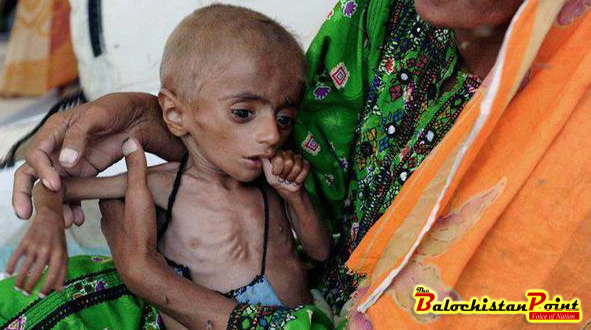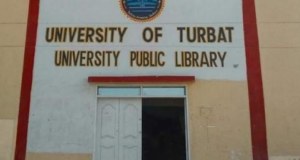By: Mahnoor Mobin
Good health and good sense are the supreme blessings but not everyone has the former one available at hand. Though health care is the basic right of every citizen but it seems it has only been left within the boundaries of being a privilege which only a few can reach and afford.
As years pass by, the most resourceful land in Pakistan keeps lagging behind the race of good nutrition amongst the total population of Pakistan. Baluchistan covers about 44% of the area of Pakistan yet still the rates of malnutrition are alarming. According to UNICEF 16% of the children in Baluchistan are malnourished, 52 percent are stunted and 39.6 percent are underweight and if it weren’t enough the maternal mortality rates are highest reaching up to 785 out of 100,000 in Baluchistan while rest of the country has 272 per 100,000. According to Pakistan Health Demographic Survey Baluchistan stands first in terms of Maternal Mortality Rate as compared to other provinces of the country. The reason behind this isn’t mere the negligence of higher authorities to provide accurate medical care to the facilities deprived areas but the illiteracy and unawareness of the local people as well.
This state of melancholy has resulted in the alertness of the local people of these areas who tend to strive for their basic rights of life including Health and Right to Education. Gul Naz, a resident of Tehsil Sanjavi of District Ziarat further told us how she and her family members struggled to bring their patient, apparently a baby, suffering from Birth Asphyxia (deprivation of oxygen during birth process) due to improper and unskilled delivery of the baby because of which he started having Seizures after a couple of days.
Gul Naz further said that at the beginning they though it was due to some nutritional deficiency so they started treating the baby with home remedies and homeopathic medicines but it was of no use and the baby’s condition started to worsen which made them to rush to Quetta. After a tiresome journey of a couple of hours she arrived at Bolan Medical College Complex Hospital with her Husband and sister in law for baby’s further treatment.
She quotes “we have been deprived of our basic necessities of life. We have pleaded the authorities several times but it was of no use because in the end it all ends up in neglect and ignorance. It is very hard for us to visit hospitals in Quetta each time as we also run out of money and lack awareness too. It gets very hard at times…”
Without proper healthcare assets (medical staff, clinics, pharmacies, collaborative technologies etc.) the older, unskilled and traditional methods of treatment are being used by the attendants which prove to be a major cause in the diminishing health system in side areas. Medical treatment these days does cost an arm and a leg and for people with insignificant wage who already are living hand to mouth, it even gets harder as the expenses end up getting out of their hands but there are alternatives which one can look up to through the help of medical professionals.
Baluchistan Maternal and Child health Policy 2015 has put forth some effective strategies for improving MCH which include Family Planning along with Birth Spacing (the period of 18 months rest after previous pregnancy), increasing skilled birth attendance and increasing use of contraceptives . According to Baluchistan Maternal and Child health Policy, the application of Birth Spacing will prevent 41% maternal, 35% infant and 74% young child deaths.
The authorities shouldn’t turn a blind eye on the prevailing health issues in Baluchistan and they should devise a plan to introduce new programs and schemes which tend to educate both Women and their families thus providing pictorial booklets and specially designed education material on family planning and safe motherhood. Women should be made aware of their prenatal and postnatal dietary intake of required supplements like Iron and Multivitamins along with required food intake. Other than this, traditional birth attendants should be trained in clean delivery and they should be made aware of the obstetric and newborn complications. Furthermore emergency transport systems should be set up and working. Campaigns and Medical Camps might also help in improving the health standard. Though this idea might seem like the thin edge of the wedge at the moment but by putting our resources and hard work in the right place we might end up with something great!
Mahnoor Mobin is student of MBBS in BMC Quetta. She is social activist and actively involved in volunteering for UNDP Balochistan and Balochistan Red Crescent etc. She is also the Vice President of Markhor Youth Forum and an ex KL-YES Program Alumna who has been to USA for cultural exchange year.
Published in The Balochistan Point on May 9, 2018
 Balochistan Point Voice of Nation
Balochistan Point Voice of Nation




